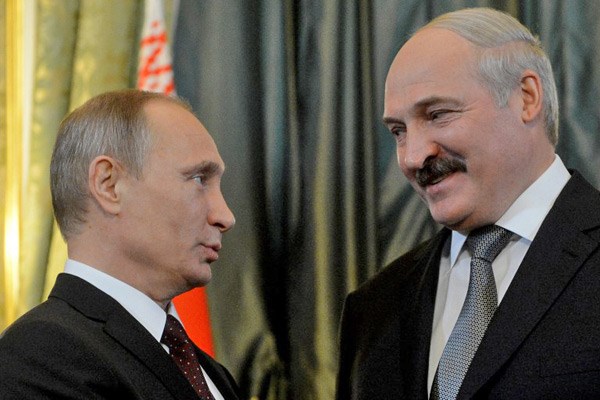Kremlin considers saving Lukashenko from losing main source of foreign currency income
Russian authorities are considering ways to help the regime of Alexander Lukashenko, which has been cut off by Western sanctions from the possibility of exporting potash, a key source of foreign currency for the Belarusian economy.
The Kremlin is now looking into the possibility of accepting Belarusian potash fertilizers in Russian ports, said Russian presidential spokesman Dmitry Peskov.
"This issue is on the agenda. It is being discussed. If I am not mistaken, so far [the redirection] of these supplies has not yet begun," he said, adding that it is better to contact the Russian Ministry of Economic Development for details.
On February 1, Lithuania terminated the contract for the transportation of Belarusian potash by Lithuanian railways. As part of this contract, 11 million tons of fertilizers were annually exported through the port of Klaipeda - 90% of all supplies of the Belarusian national potash producer Belaruskali.
The agreement, which was supposed to be in effect until 2023, was terminated ahead of schedule on the grounds that it contradicts the interests of Lithuania's national security.
The United States imposed sanctions against Belaruskali on December 8, but Lithuanian Railways continued the transit, fearing fines worth more than a billion dollars. This almost caused the Lithuanian government to fall. Lithuanian Foreign Minister Gabrielius Landsbergis and Transport Minister Marius Skouodis submitted their resignations, but they were not accepted. The head of the Latvian Railways Mantas Bartushka was dismissed.
Belaruskali produces 20% of potash fertilizers in the world, supplying products to 130 countries, among which the largest consumers are Brazil, China and India.
Whether Russia will be able to transship the entire volume of potassium chloride produced by Belaruskali through its seaports without affecting the volume of other Russian Railways cargo remains a big question.
The Baltic Bulk Terminal, owned by the Russian potash fertilizer producer Uralkali, could accept some volume of Belarusian exports, but hardly all of it. In other Russian ports there are no idle capacities or underutilized terminals, says Finam Holdings analyst Alexei Kalachev.
"Port capacity will not be enough to ensure the transshipment of most of the volumes," agrees Ekaterina Lipatova, vice president and senior analyst at Moody's.
The interests of Russian producers will remain a priority, she said.
